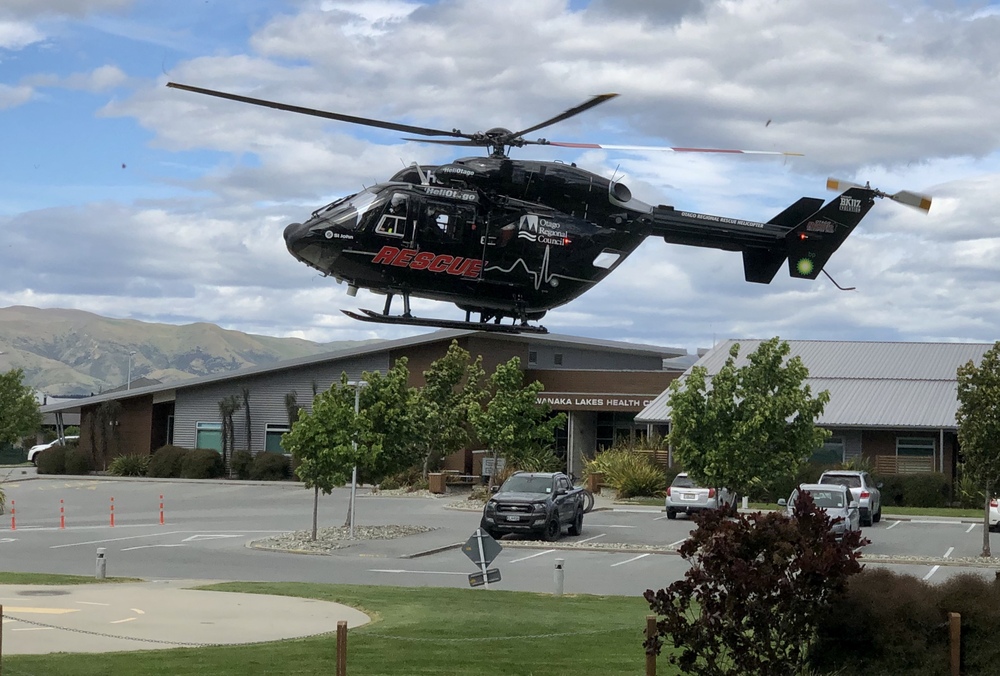Health: ‘Urgent call’ for more accessible health care
Sue Wards
07 March 2024, 4:06 PM
 Some residents are frustrated at long wait times to see a GP, and some have concerns about the lack of cultural diversity in healthcare providers. PHOTO: Supplied
Some residents are frustrated at long wait times to see a GP, and some have concerns about the lack of cultural diversity in healthcare providers. PHOTO: SuppliedCommunity members are calling urgently for a “more robust, accessible, and equitable health care system” according to the results of the district’s sixth annual Quality of Life Survey.
The survey report, written by Versus Research for Queenstown Lakes District Council (QLDC), said responses from 232 people in the survey about the district’s health system reflect the call for health services which better serve residents’ growing and diverse needs.
The Quality of Life Survey received 1,767 responses from residents and 749 responses from non-residents. It was open from October 16 – November 19, 2023.
Go deeper: Medical services under strain subject of public meeting
Versus Research noted feedback on poor investment in health services, lack of access to services, inequities in healthcare, and “woefully lacking” mental health services.
People talked of their frustration at long wait times to see a GP, the lack of availability of GPs, the need for better access to emergency care, and the need for health services to accommodate visitors and locals taking part in outdoor activities with injury risk.

Respondents wanted health services to accommodate visitors and locals taking part in outdoor activities with injury risk. PHOTO: Wānaka App
The availability of specialised services like fertility treatment and improved maternity care was highlighted as a pressing need.
“Across the comments, there was an overarching dissatisfaction with the state of healthcare in the district,” the report said.
“Respondents highlight the need for fundamental changes to ensure that the health system serves residents effectively and equitably. Some comments demonstrate a belief that the health system has been underfunded for decades and has failed to keep up with residential growth and tourism needs.”
Respondents were also concerned about the cost of healthcare services, with the high cost of medical procedures (such as dental work and doctors’ appointments) repeatedly mentioned.
“The costs have led to calls for discounts for senior citizens and locals and a general reduction in healthcare costs to make them more manageable for the average resident,” the report said.
Respondents were also unhappy about the variation in the number of qualified doctors across the district, inequitable access to public transport to healthcare facilities, the lack of cultural diversity in healthcare providers, and differences in the requirement to pay for services such as lab tests or x-rays.
“These issues present additional barriers to accessing necessary services, which is considered unfair and contributes to the financial strain on residents,” the report said.
As for mental health services (especially for young people), they were viewed as “woefully lacking” within the district.
There is a limited number of services available, and these are considered prohibitively expensive or overloaded, the report said.
“On the whole, people are struggling mentally,” the report said.
“A bad winter, housing increases, food costs (food takes up such a large portion of most people’s income here), and general recession are contributors. Lack of psychiatric care in the region (and how unaffordable it is) is a large problem, as is the long waits and the cost of seeing a psychologist/therapist/counsellor.”
The Wānaka Upper Clutha Community Board (WUCCB) has organised a public meeting on health services this month.
WUCCB chair Simon Telfer told the Wānaka App that while health care “doesn’t typically fall within the community board’s remit, we felt compelled to make something happen and get questions answered on behalf of the community”.
Speakers at the public meeting on Wednesday March 20 (from 7-8pm at the Lake Wānaka Centre) will include Dunstan Hospital clinical director Jonathon Wills, Aspiring Medical Centre GP Dr Fiona MacLean, Te Whatu Ora Southern chief medical officer David Gow, Hato Hone St John Central Otago area operations manager David Baillie, and Te Whatu Ora Southern group director of operations Hamish Brown.
People are encouraged to send through questions in advance by dropping a letter into QLDC’s office at 47 Ardmore Street, emailing [email protected] or adding a comment to the event listing on the council’s Facebook page @QLDCinfo.
Go deeper:
Read the full 2023 Quality of Life Survey results here.







